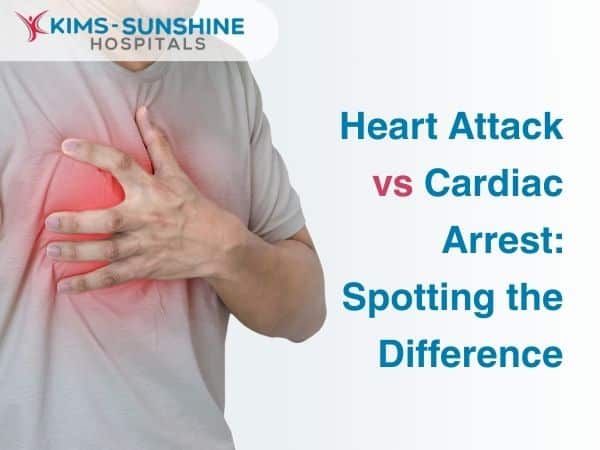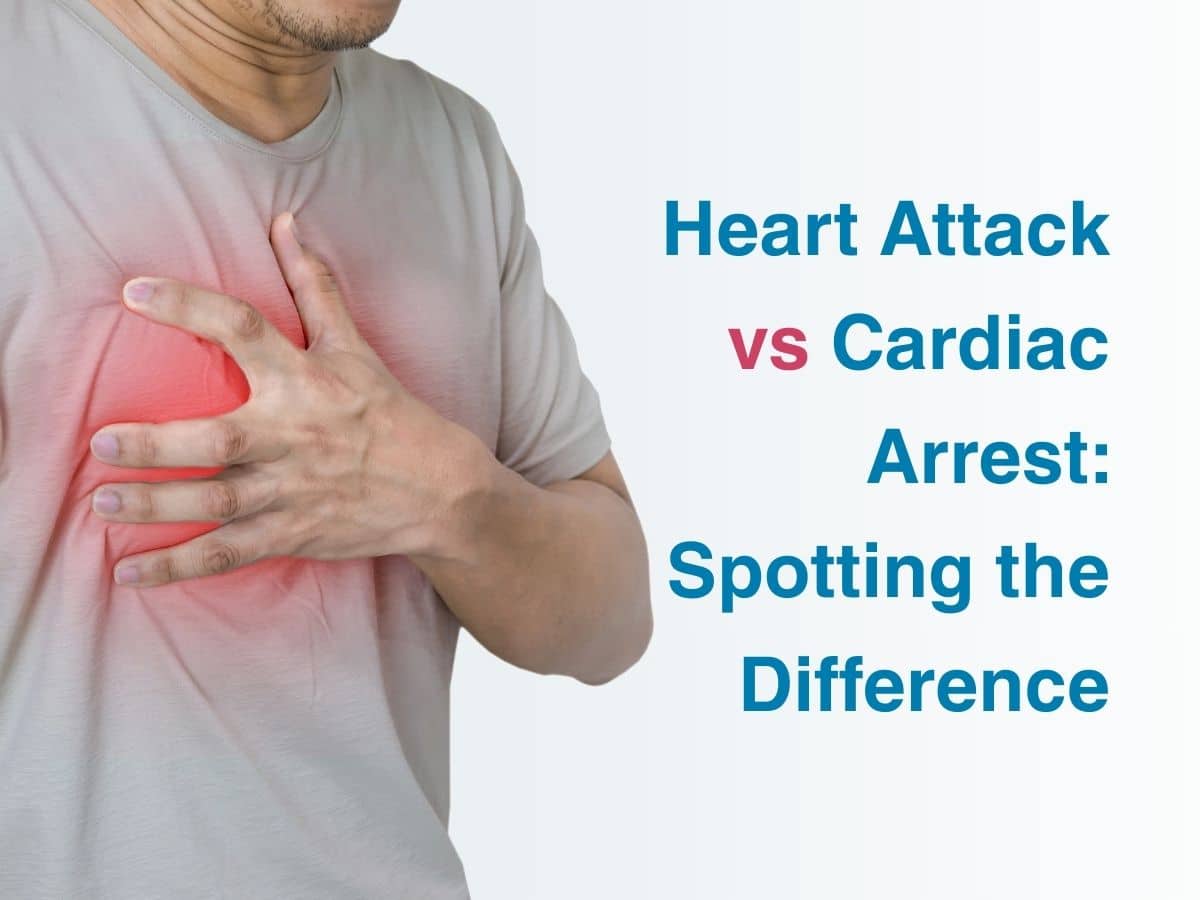
Heart Attack vs Cardiac Arrest: Spotting the Difference
 Most of us associate heart related problems with one supposedly universal sign- chest pain that makes you clutch at your chest. While chest pain is a common symptom, it is important to remember that it is a general one and is not very specific- which means knowing about other symptoms that come along with it will help you in making an accurate diagnosis and offer timely help to an affected individual. A heart attack is hence pretty different from a cardiac arrest in a few important ways, though the risk factors for both conditions are similar.
Most of us associate heart related problems with one supposedly universal sign- chest pain that makes you clutch at your chest. While chest pain is a common symptom, it is important to remember that it is a general one and is not very specific- which means knowing about other symptoms that come along with it will help you in making an accurate diagnosis and offer timely help to an affected individual. A heart attack is hence pretty different from a cardiac arrest in a few important ways, though the risk factors for both conditions are similar.
Difference Between Heart Attack And Cardiac Arrest-
The first thing you need to remember is that a heart attack is a DIFFERENT condition, when compared to a cardiac arrest. But, how are they different? It lies in how the heart gets affected- in a heart attack, blood supply to the heart gets interrupted, causing cell death and a host of symptoms. It may be due to a plaque or an errant blood clot. The heart tries to continue pumping blood desperately and so a weak pulse will still be present.
A cardiac arrest on the other hand is an electrical problem- where the heart stops beating rather suddenly. It may begin as an arrhythmia initially, but can escalate quickly to cardiac arrest suddenly. The person faints or passes out immediately and has no pulse.
But, there is a catch here- a heart attack can progress to a cardiac arrest at times, or even during the recovery period in the hospital. So, you can think of a heart attack as a probable cause for a cardiac arrest to occur in the future, though the chances of that happening are very low.
Heart Attack Risk Factors-
Your risk of suffering from heart disease is greatly heightened when you have a family history of this condition or if you are obese, have high blood pressure, are diabetic and are not physically active. Hypercholesterolemia is a prominent cause for heart attacks- as plaque can stop free blood flow to and from the heart, causing undue stress. There is nothing you can do to change your genes or age, but the other risk factors like poor diet, being sedentary and not sleeping or managing stress well- these are related to your lifestyle and CAN be changed definitely.
Causes Of Cardiac Arrest-
The causes for a cardiac arrest are similar to that of a heart attack, so let us look at them below-
- If you are obese
- If you are diabetic
- If you already have heart disease in some degree
- If you have dealt with heart failure or have had a previous cardiac arrest or heart attack
- If you have sleep apnoea
- If you smoke, drink or generally lead a sedentary lifestyle.
- Apart from age and genetics, you also need to look at your electrolyte levels regularly.
Emergency Response For Chest Pain-
Recent reports say around 7 lakh individuals die from sudden cardiac arrests every year, all over the country. Most of these deaths are preventable, if timely first aid and treatment is provided. If someone faints suddenly, check for a pulse and if you don’t find any, you should begin CPR immediately. You should call for help also, or yell at someone to call the emergency services- if people are around. But, if you are alone, call for help and then continue CPR. Quick external defibrillation is the only way to shock the heart into a rhythm- and that will be done when the medical personnel arrive on the scene. For a heart attack, if someone has shoulder pain that radiates from their heart to the left arm or complains of stomach issues, chest pain etc. – call for help or get them to a hospital immediately. Fast action is a must and the need of the hour in heart related cases, so memorise this number- 112!
Conclusion
Prevention of heart disease and cardiac arrest is possible -if you can take good care of yourself by eating well, sleeping regularly, getting about 2-3 hours of exercise in any form over a week and learn to manage stress- work, school or anything else. Following a relatively consistent schedule or routine is always good, instead of trying to make drastic changes that will never stick. Preventive health screening is your best friend every year- get a comprehensive health check up done annually, even if you feel normal or fine. Subtle warning signs can be found in such tests and if everything seems normal- then cheer up and continue your routine.






